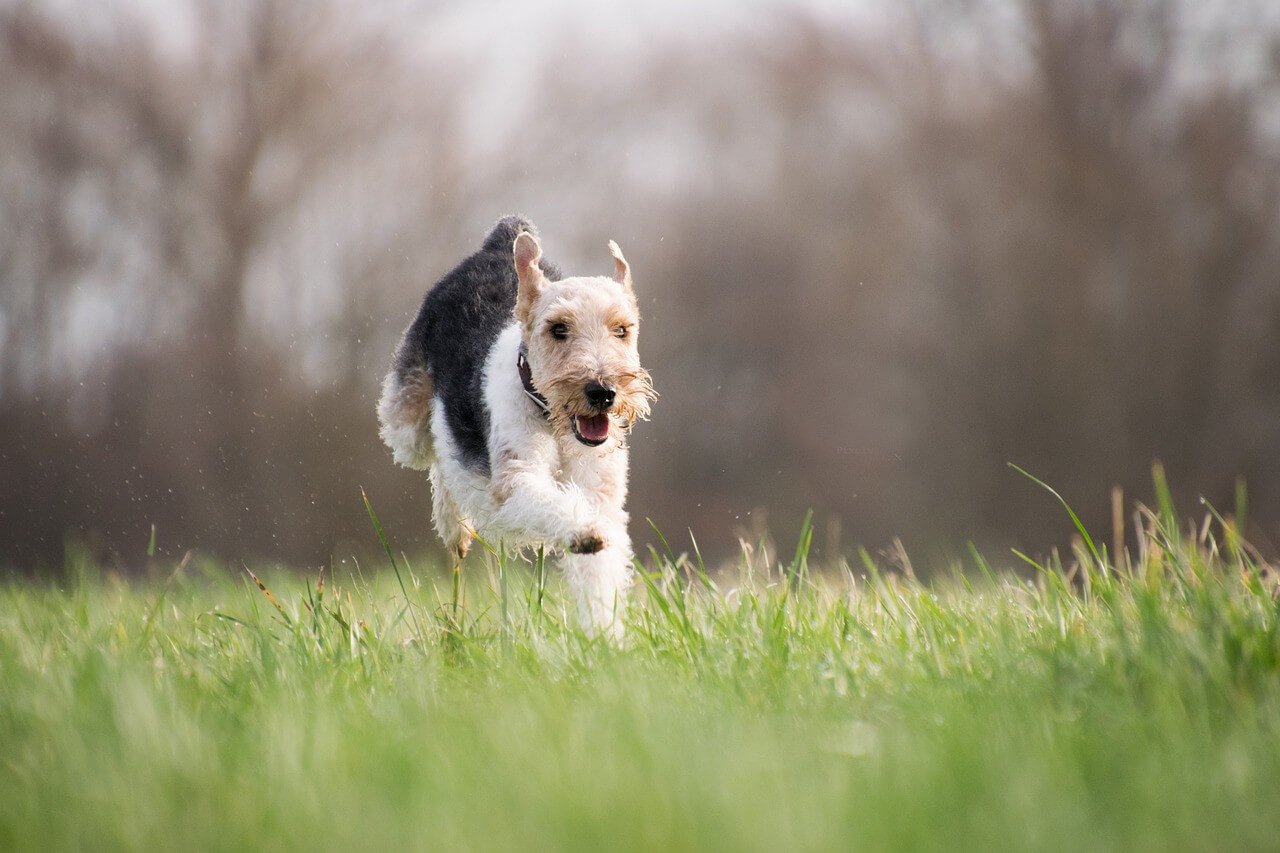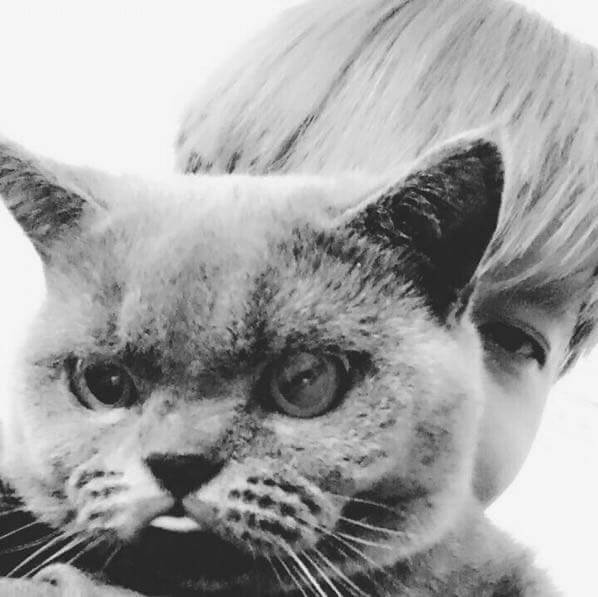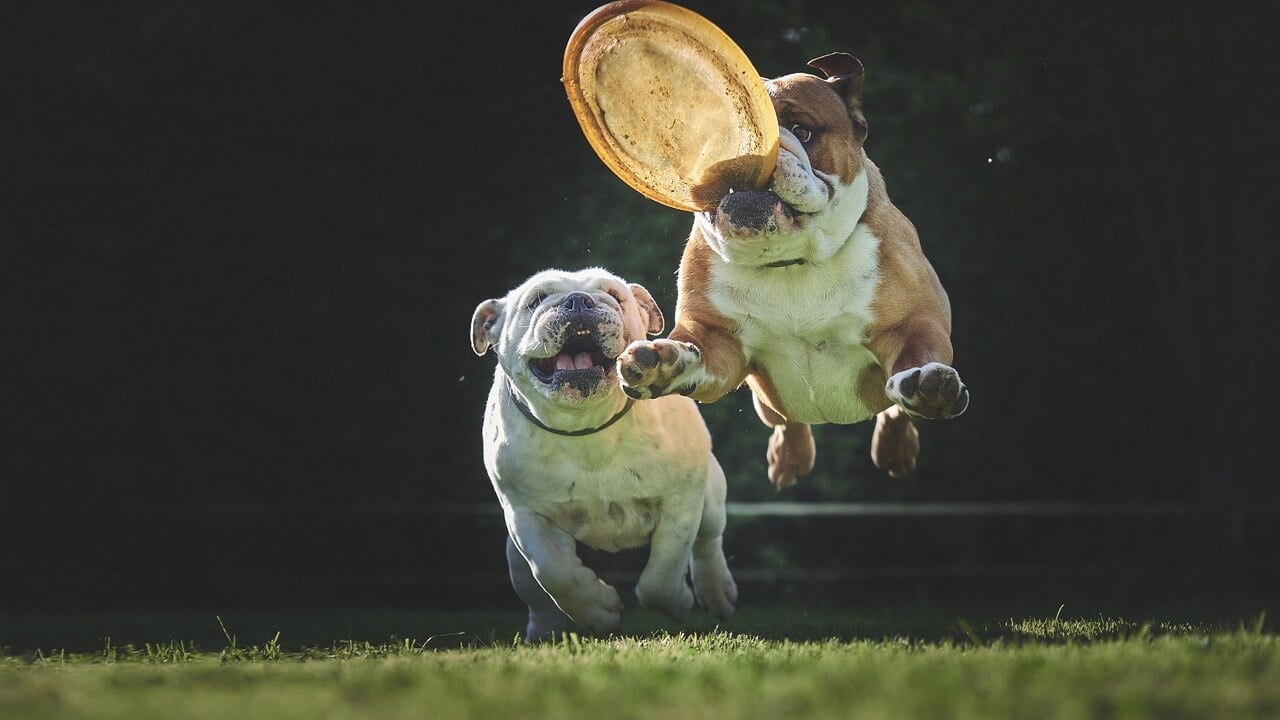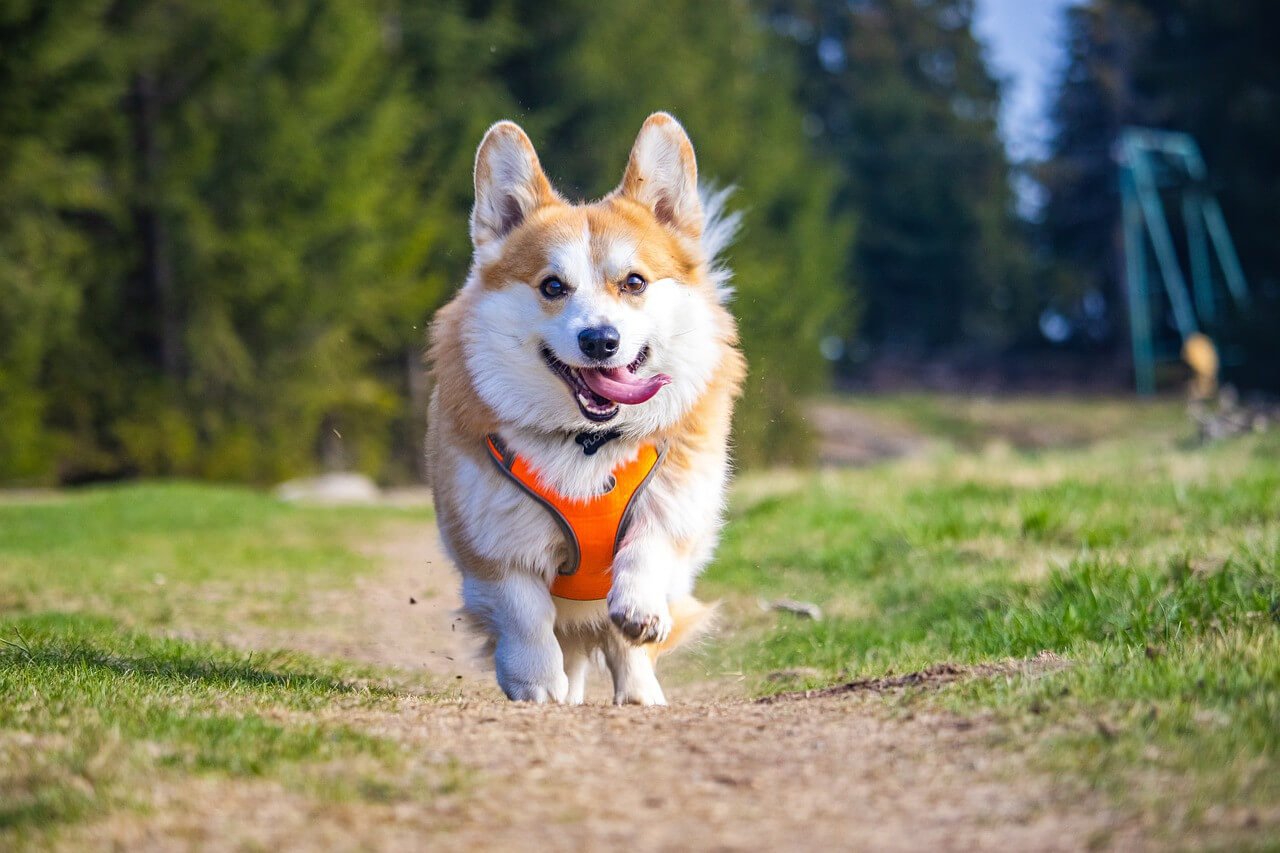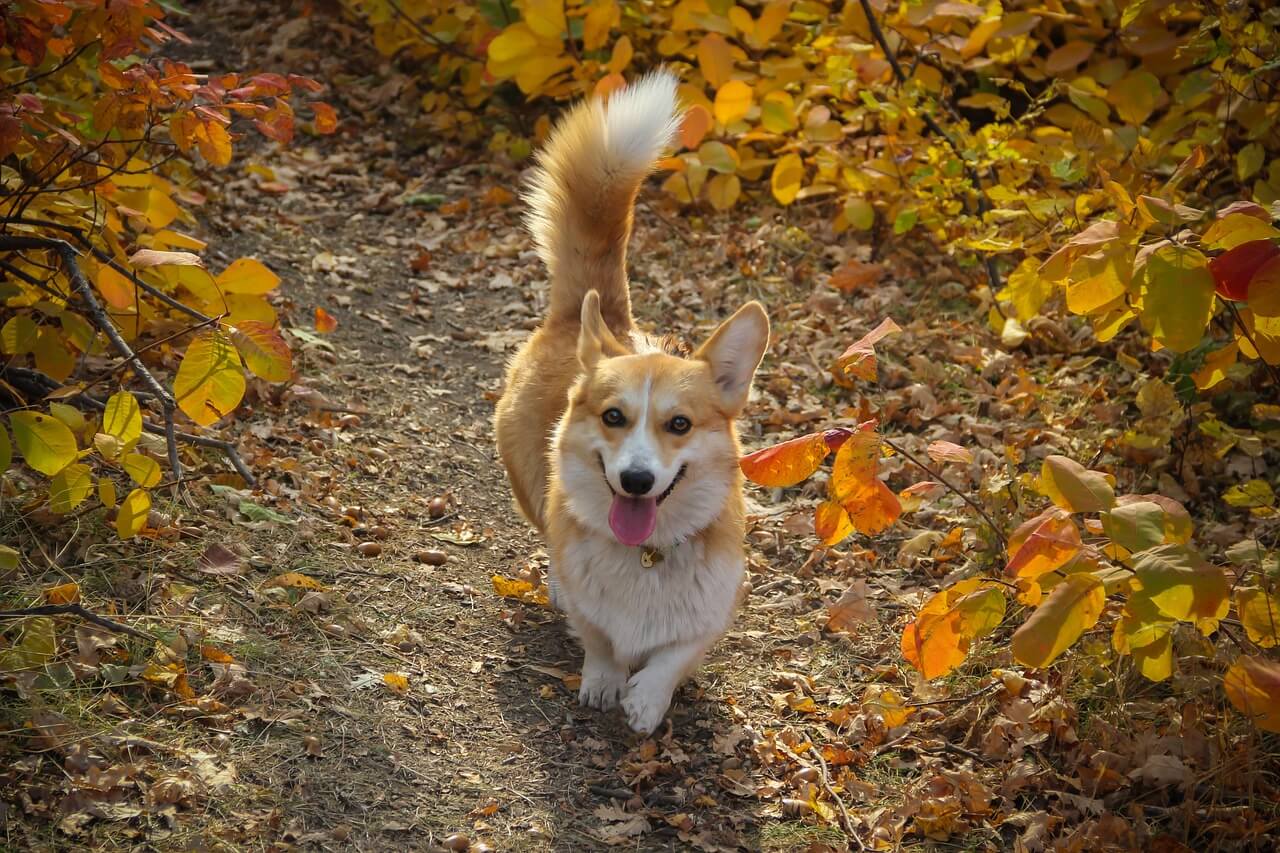As a dog owner, you may have noticed that your dog follows you everywhere—whether you're in the bathroom, the kitchen, or just moving from room to room. This constant companionship can be endearing, but you might wonder why your dog behaves this way. From young puppies to senior dogs, velcro dogs often stick close to their humans for various reasons, including emotional attachment, separation anxiety, and instinctual pack behavior. For dogs dealing with separation anxiety, an anti anxiety dog bed can offer comfort and security, helping to alleviate stress when you're not around.
The Emotional Connection: Why Your Dog Follows You Everywhere
Have you ever wondered, “Why does my dog follow me everywhere?” Many dog owners find themselves with a constant companion, whether they’re walking from the living room to the kitchen or even heading to the bathroom. This behavior, seen in dogs of all breeds and ages, stems from a combination of emotional attachment, pack mentality, and natural instincts. Understanding the reasons behind your dog’s behavior can help you strengthen the bond with your canine companion and address any underlying concerns.
Pack Animals at Heart
Dogs are social animals, inheriting their instinct to stick close from their wolf ancestors. Pack animals thrive on unity, and for many dogs, following their owner everywhere is their way of staying with their “pack leader.” Whether it’s an older dog or a young puppy, your dog likely sees you as their primary caregiver and leader, which explains why they shadow your every move around the house.
Showing Love and Affection
For most dog owners, their furry friend’s constant presence is a sign of love and loyalty. Dogs follow their owners not only because they see them as a provider of food and care but also because they genuinely enjoy spending time with them. Certain breeds, like Golden Retrievers and Border Collies, are known to be particularly affectionate and will often follow their favorite person as an expression of devotion.
Curiosity and Routine
Dogs are naturally curious creatures. Your daily routines, like cooking, cleaning, or simply moving from one room to another, intrigue your pet. Toy breeds and rescue dogs especially may follow you everywhere to feel included in the action or to seek reassurance in unfamiliar situations. For anxious dogs or those experiencing a new behavior, such as suddenly following you more closely, this could indicate they’re feeling anxious or uncertain.
Separation Anxiety and Velcro Dogs
Some dogs follow their owners everywhere due to separation anxiety. Velcro dogs—those that stick close at all times—may exhibit this behavior when they feel anxious about being left alone. If your dog suddenly started following you everywhere or becomes distressed when you leave the room, it could signal a deeper emotional need. Separation anxiety tends to affect rescue dogs and certain working dog breeds more often. Providing a comfortable dog bed or using food puzzles can help alleviate boredom and reduce anxiety for short periods when you’re away.
Health Concerns in Older Dogs
Elderly dogs may follow their owners more closely due to age-related issues, such as feeling sick, tired, or disoriented. If your senior dog follows you everywhere or exhibits new behavior, it might indicate a medical concern, like cognitive decline or discomfort. A visit to the veterinarian can make a big difference in ensuring your pet’s health and happiness.
How to Balance Attention and Independence
While it’s heartwarming to have your best friend by your side, too much clinginess can be challenging for both you and your dog. Encouraging alone time through gradual training and using toys or food puzzles to entertain them can help build their confidence. Make sure your dog gets enough exercise, as a tired dog is often more content to relax independently. Teaching simple dog commands and reinforcing independent behavior can also help strike a healthy balance.
Velcro Dogs and Behavioral Explanations
Dogs are naturally curious animals, and sometimes they follow you because they are interested in what you’re doing. Whether you’re cooking, cleaning, or pacing around the house, your dog might be curious about the changing environment and want to be part of it. Dog owners often notice their pets following them closely as a way to stay involved in their daily activities. For toy dog breeds and other smaller dogs, following their owners may also be a way to feel included in their daily routines.
However, for some dogs, this behavior may be linked to training. Beagles, for example, have a heightened sense of smell and are bred to track scents. This can lead them to follow their owners, not only out of affection but also due to their instinct to follow trails. In contrast, other dogs may not follow as closely due to different instincts or training.
Psychological Factors: Is It Separation Anxiety?
For some dogs, following their owners is not just about curiosity or affection but could be a sign of separation anxiety. Dogs with this condition often become anxious when left alone, leading them to cling to their owners whenever they sense a possible separation. Anxious dogs, such as Golden Retrievers or rescue dogs, may follow you around the house as a way to cope with their fear of being left alone.
If your dog exhibits signs like pacing, whining, or becoming distressed when you leave a room, it could indicate separation anxiety. In such cases, gradual training to build independence, offering toys like food puzzles, and practicing basic dog commands can help alleviate their anxiety and improve their behavior.
Plush Lamb Squeaker Toy Dog Interactive Toy
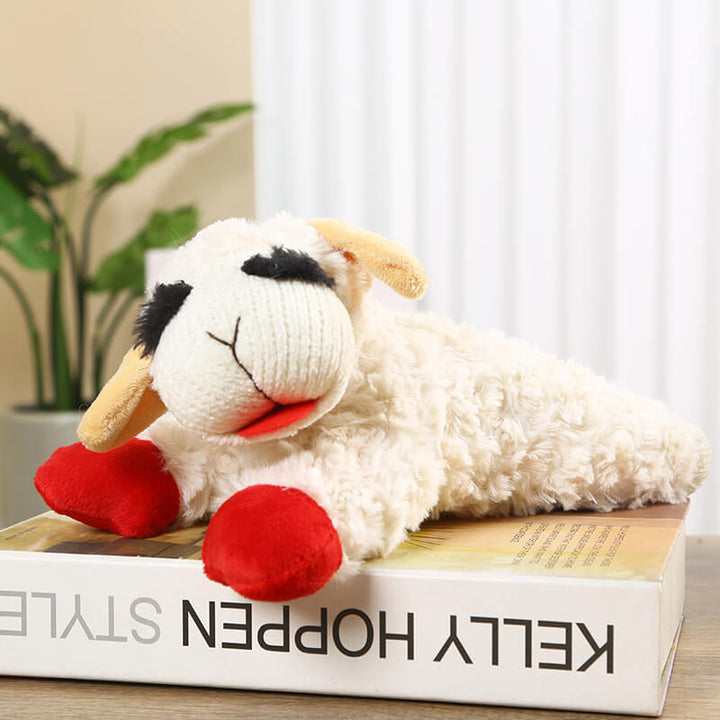
CHF 7.00
CHF 10.00
Treat your friend to fun and coziness, with our Cute Sheep Squeaker Plush Toy. Suitable for dogs of any size this charming and huggable toy is crafted to entertain, engage and offer solace to your pet. Adorable Sheep: Carefully designed… read more
Health Reasons Behind Your Dog’s Clinginess
As dogs age, they may experience cognitive decline or other health issues that make them more dependent on their human caregivers. Elderly dogs may follow you closely because they feel disoriented or insecure, especially in unfamiliar or chaotic environments. For example, if your senior dog suddenly starts following you more than usual, it might be a sign of aging or cognitive dysfunction.
In some cases, underlying health problems like joint pain, vision loss, or hearing issues may lead dogs to stick close to their owners for comfort and security. If your dog’s behavior changes suddenly or becomes excessive, it’s important to consult a veterinarian to rule out any medical concerns.
When to Be Worried: Excessive Following Behavior
While it’s normal for dogs to follow their owners around the house, excessive clinginess can be a cause for concern. If your dog’s behavior becomes disruptive or worsens over time, it may indicate a deeper issue, such as separation anxiety or a health problem. Clingy behavior that includes symptoms like trembling, constant whining, or aggression when separated from you should not be ignored.
In these cases, it’s important to seek professional help from a veterinarian or dog behaviorist to address the root cause and create a plan for improving your dog’s confidence and independence.
Attention and Rewards: The Role of Positive Reinforcement
Attention and rewards are factors, in influencing a dogs behavior and their inclination to stick close, to their owners at all times. Using reinforcement is a method to promote desired actions like sticking around and deter unwanted behaviors.
When you give your dog treats or show affection as a way to appreciate them for staying by your side and following you around consistently helps in reinforcing this behavior and encouraging them to keep doing so with puppies who are exploring their surroundings and bonding with you building a pleasant connection by rewarding their closeness to you.
It's crucial to find a ground when it comes to this situation though – having a dog that enjoys being, around you is great but too much attachment can pose challenges too! Pet owners can employ reinforcement techniques to handle this issue by praising their friend for doing things on their own too! For example; providing treats when your dog stays relaxed in their bed or entertains themselves with toys can boost their confidence and independence when they're not next, to you directly.
Adding reinforcement to your schedule can contribute to establishing a harmonious connection, with your furry friend by making them feel cherished and safe while also nurturing their sense of autonomy.
Life Stages and Following Behavior
A dog’s life stage can also impact their following behavior. For example, young puppies are more likely to follow their owners everywhere due to their natural instinct to follow their pack leader and learn from them.
As dogs mature, their following behavior may change. Some dogs may become more independent and less likely to follow their owners, while others may remain clingy and attached.
Elderly dogs, on the other hand, may experience a resurgence in following behavior due to declining physical abilities and increased dependence on their owners.
Understanding the different life stages and how they impact following behavior can help dog owners tailor their approach to their dog’s individual needs and develop strategies to address any issues that may arise.
Conclusion: Strengthening the Bond with Your Dog
Understanding why your dog follows you everywhere is key to strengthening your relationship with them. Whether your dog’s behavior is rooted in their pack mentality, separation anxiety, or health concerns, taking the time to address their needs will help you create a more balanced and harmonious environment. From providing enough daily exercise to using food puzzles to alleviate boredom, there are many ways to support your dog’s mental and physical well-being.
Remember, your dog follows you because they love and trust you. Whether they’re seeking comfort, security, or companionship, your attention and care are essential to their happiness.
Reference:
https://www.akc.org/expert-advice/advice/why-does-my-dog-follow-me-everywhere/


